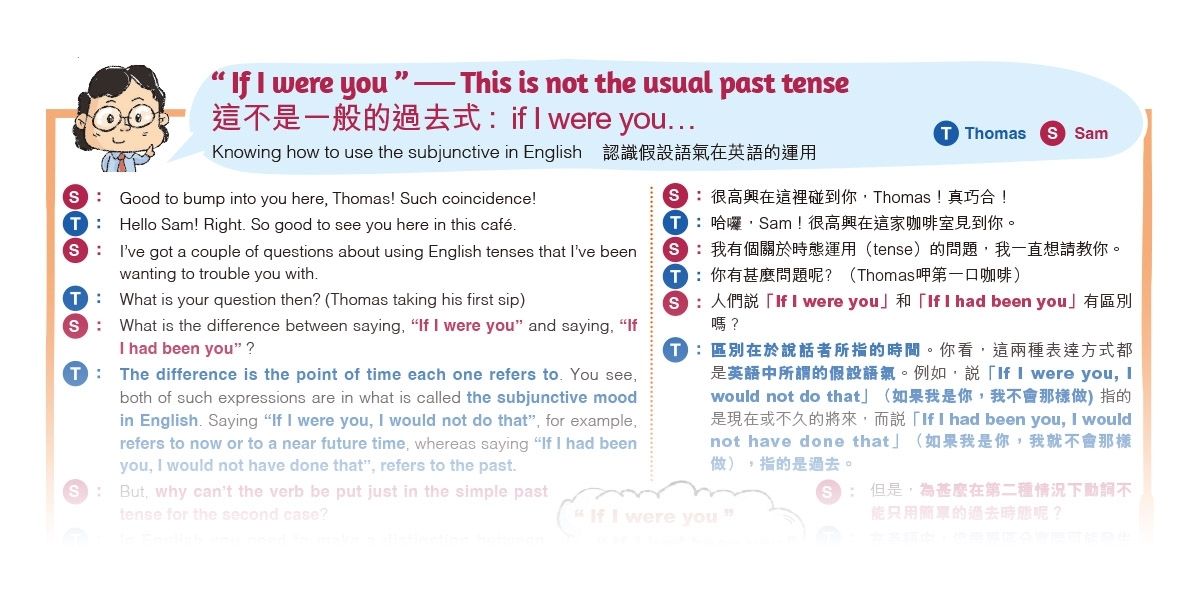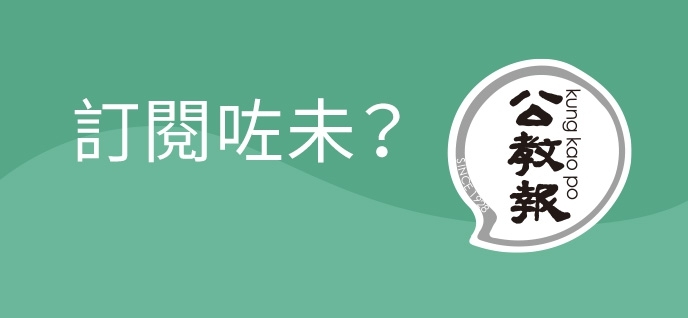昔日文章


Learning English with Thomas
2023.06.18
“ If I were you ” —— This is not the usual past tense
這不是一般的過去式 : if I were you…
Knowing how to use the subjunctive in English 認識假設語氣在英語的運用
T:Thomas S: Sam
S:Good to bump into you here, Thomas! Such coincidence!
T:Hello Sam! Right. So good to see you here in this café.
S:I’ve got a couple of questions about using English tenses that I’ve been wanting to trouble you with.
T:What is your question then? (Thomas taking his first sip)
S:What is the difference between saying, “If I were you” and saying, “If I had been you” ?
T:The difference is the point of time each one refers to. You see, both of such expressions are in what is called the subjunctive mood in English. Saying “If I were you, I would not do that”, for example, refers to now or to a near future time, whereas saying “If I had been you, I would not have done that”, refers to the past.
S:But, why can’t the verb be put just in the simple past tense for the second case?
T:In English you need to make a distinction between things that can actually happen and things that are already “done”, that have already happened. Such actions or events cannot be reverted. That’s why the simple past tense form is used for the subjunctive mood in the first case and the perfect tense form is used for the modal verb in the second case.
S:It’s clear now. (smiling)
S:很高興在這裡碰到你,Thomas!真巧合!
T:哈囉,Sam!很高興在這家咖啡室見到你。
S:我有個關於時態運用(tense)的問題,我一直想請教你。
T:你有甚麼問題呢﹖(Thomas呷第一口咖啡)
S:人們說「If I were you」和「If I had been you」有區別嗎?
T:區別在於說話者所指的時間。你看,這兩種表達方式都是英語中所謂的假設語氣。例如,說「If I were you, I would not do that」(如果我是你,我不會那樣做) 指的是現在或不久的將來,而說「If I had been you, I would not have done that」(如果我是你,我就不會那樣做),指的是過去。
S:但是,為甚麼在第二種情況下動詞不能只用簡單的過去時態呢?
T:在英語中,您需要區分實際可能發生的事情和已經「完成」的事情,已經發生的事情。此類操作或事件無法還原。這就是為甚麼在第一種情況下使用簡單的過去式時態形式來表示假設性的語氣,而在第二種情況下,將完成式時態形式用於情態動詞。
S:現在很清楚了。(微笑)






